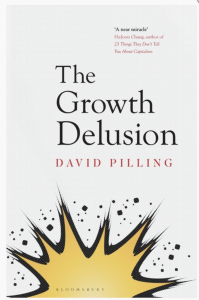
GDP is unreliable for measuring success

 Twenty years after former president Bill Clinton‘s ramping up material prosperity economy, bons mots, the world’s developed economies are wealthier than ever, in real terms more than 70 per cent larger than they were in 1992.
Twenty years after former president Bill Clinton‘s ramping up material prosperity economy, bons mots, the world’s developed economies are wealthier than ever, in real terms more than 70 per cent larger than they were in 1992.
But Bill Clinton’s verdict went wrong, as the golden age of popular social and economic analysis explains why an expanding economy is not by itself enough.
The Growth Delusion, does not concentrate on growth but instead focus on gross domestic product itself: the fundamental of macroeconomic concept that David Pilling identifies as dominating most modern discussions of national economic well-being. According to Pilling the GDP is somewhat downright misleading statistics.
The official protocols define the scope of GDP as measuring all monetised activity between willing parties in a given period, including the sale of stolen goods for cash contributes positively to GDP, but a parents housework and childcare being unpaid are excluded, resulting in one recent evaluation in a $3.8 trillion underestimate of the size of the US economy. So GDP is not a very good indication of how well off a country is.
The Growth Delusion exposes the inadequacies of GDP and the usual tirades against lies and statistics.
Pilling explains, GDP is the locus Classicus of this principle, a concept developed by the Russian-American economist Simon Kuznets to justify fiscal activism of the US’s new deal in 1930s. GDP was specially tailored to facilitate fiscal policy, so as not to summarise national well-being or to benchmark industrial sophistication.
Pilling gives a flavour of modern attempts to formulate public policy goals beyond the growth of GDP and construct new statistics needed to motivate and monitor the implementation. The Human Development Index (HDI) devised by Pakistani economist Mahbub ul Haq in 1990 was widely used in international development since then.
The Growth Delusion: Wealth, Poverty and the Well-Being of Nations by David Pilling, Bloomsbury £20/ Tim Duggan Books $26, 352 pages.
